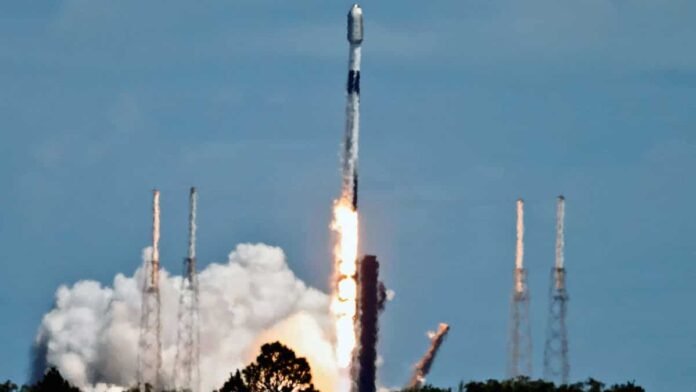The European Union has launched a €10 billionn (£8.3 billion) space programme called Iris2, aiming to build a network of 290 satellites to compete with Elon Musk’s Starlink. This ambitious project is designed to strengthen Europe’s control over its communications and offer secure connections for governments and military operations amidst rising cybersecurity threats.
“This is a big step towards Europe’s sovereignty and secure connectivity,” the EU said in a statement about the launch.
A ‘Mega Constellation’ for secure connections
Using advanced technology, Iris2 will provide a system equivalent to 1,000 satellites, operating in both medium Earth orbit and low Earth orbit. This will ensure widespread coverage for defence, internet services, TV, weather updates, and border surveillance across Europe.
Leading European companies like Airbus Defence and Space, Thales Alenia Space, and Telespazio will be key contributors to the project.
Geopolitical challenge
The Iris2 project aims to meet Europe’s long-term satellite needs, which have become more urgent due to events like Russia’s invasion of Ukraine and cyberattacks in Europe.
UK chooses to stay out
The UK, once part of the EU’s Galileo satellite programme, has opted not to join Iris2. EU officials confirmed that Britain has made no move to participate in the project, despite shared concerns about defence and cybersecurity.
“So far, we have not seen any interest from our UK partners,” an EU official said, responding to questions about potential UK involvement, even with Labour leader Keir Starmer’s promise to improve EU-UK relations.
Since Brexit, the UK has been working on its satellite efforts. In August, the UK launched its Tyche Earth-imaging military satellite, and another satellite, Juno, is planned for 2027 to enhance surveillance and intelligence capabilities.
Europe’s third major space project
Iris2 is the EU’s third major satellite programme, following Galileo and Copernicus. It reflects Europe’s growing focus on protecting its communication systems and reducing reliance on other global players.
The first government and commercial communications through Iris2 are expected to start by 2030. With this initiative, the EU is taking a firm step towards greater independence and improved cybersecurity in an increasingly competitive global tech arena.
(With inputs taken from agencies)


